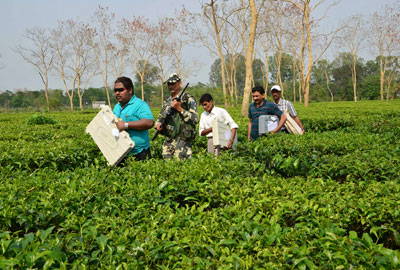This month, Indians are voting in the largest election in history. It’s an exciting exercise in democracy, but it comes against a grim backdrop: censorship in the country is on the rise, according to a quarterly report by the South Asian media watchdog, The Hoot.
The latest report documents 52 instances of censorship during the first three months of 2014 compared with 45 during the same period last year. The most notable example is the abrupt blackout of a live telecast on the final moments of parliamentary deliberations and voting on a controversial bill to create the new state of Telangana. While the government claims the blackout was due to a technical glitch, the opposition Bharatiya Janata Party (BJP) insists it was a tactical move by the ruling Congress party to ram through the vote to shore up support during an election in which its prospects look grim. Other parties also slammed the blackout as “undemocratic.”
Other noteworthy examples documented by The Hoot include the recall of Wendy Doniger’s books, the banning of documentaries including “No Fire Zone,” and the blacking out of television news channels that criticized state governments.
While the government was the top transgressor (consistent with last year), right-wing Hindu groups trailed just behind. In fact, the number of cases of censorship by right-wing Hindu groups nearly doubled, according to the report. Many observers predict that these groups will be further emboldened if BJP candidate Narendra Modi becomes prime minister.
“There is less and less space for contentious and dissenting views,” Geeta Seshu, consulting editor for The Hoot, told CPJ. “In one sense, differences are becoming more marked and sharper, which may not a bad thing in itself, but it is extremely unhealthy if the airing of these differences is silenced or censored.”
You can read the full report here.
